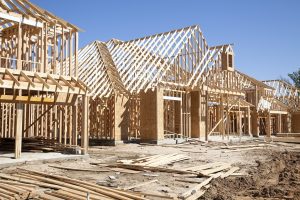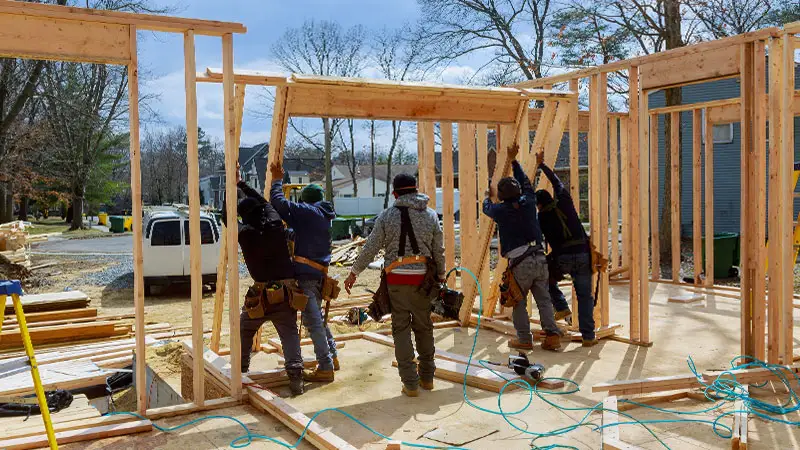Introduction
As the housing market faces the reality of rising construction costs, potential homebuyers and builders find themselves at a crossroads. The age-old decision of whether to build a new home or buy an existing one has gained new dimensions. In this article, we will delve into the escalating construction costs, the implications for the housing market, and how it influences the build-or-buy dilemma.
The Rising Tide: Understanding Escalating Construction Costs
To make an informed decision about building or buying a home, it’s essential to comprehend the reasons behind the increasing construction costs.
Skyrocketing Material Prices
A key factor contributing to the surge in construction costs is the soaring prices of building materials. Lumber, steel, cement, and other essential materials have witnessed unprecedented price hikes. These increased material costs significantly impact construction budgets, leading to higher expenses for both builders and potential homebuyers.
Skilled Labor Shortages
Labor shortages in the construction industry are another significant factor. The demand for skilled workers, such as electricians, plumbers, and carpenters, far outpaces the available workforce. As a result, builders often need to offer higher wages to attract and retain skilled labor. These labor-related expenses further drive up the overall cost of building a new home.
Impact of Strong Housing Demand
The high demand for housing further complicates the construction cost equation. Builders face a plethora of projects, intensifying competition for available labor and materials. The increased demand can lead to higher prices and make it challenging to stay within a predetermined budget.

Challenges and Implications for Homebuyers and Builders
The implications of escalating construction costs extend to various aspects of the housing market and influence the decision-making process for both homebuyers and builders.
Affordability Concerns
The most direct impact of rising construction costs is on the affordability of homes. Builders often pass on these increased expenses to homebuyers, making the dream of homeownership less attainable for many. Escalating costs can result in budget constraints, limiting the options available to potential homebuyers.
Extended Project Timelines
Rising construction costs can also lead to project delays. Builders facing higher expenses and limited availability of labor and materials may need to put projects on hold or slow down construction. These delays can inconvenience homebuyers and extend the timeline for moving into a new home.
Impacts on the Real Estate Market
The escalating construction costs have broader implications for the real estate market. The challenges faced by builders and the increasing costs they encounter influence the inventory of available homes, pricing, and the overall dynamics of the housing market.
Navigating the Build-or-Buy Decision
Given these challenges, potential homebuyers and builders must weigh the pros and cons of building a new home versus buying an existing one.
Building a New Home
Building a new home provides the advantage of customization. Homebuyers can design the house according to their preferences and needs. However, they need to navigate the higher costs and potential delays associated with construction.
Buying an Existing Home
Buying an existing home offers a more immediate solution. It can often be less expensive than building a new home due to the lower costs associated with established properties. However, buyers may need to compromise on certain features and design elements.
Considerations for Decision-Making
Making the build-or-buy decision involves considering budget constraints, time frames, and personal preferences. Prospective homebuyers should assess their financial readiness and flexibility in terms of project timelines.
Impact on the Housing Market
This table can illustrate the impact of rising construction costs on the housing market.
| Impact | Description |
|---|---|
| Rising Home Prices | Increased construction costs lead to higher home prices, impacting affordability. |
| Extended Project Timelines | Escalating costs can lead to project delays, extending the timeline for moving into a new home. |
| Impacts on the Real Estate Market | The challenges faced by builders and the increasing costs they encounter influence the inventory of available homes, pricing, and the overall dynamics of the housing market. |
Navigating the Build-or-Buy Decision
This table can summarize the considerations for the build-or-buy decision.
| Consideration | Description |
|---|---|
| Building a New Home | Pros: Customization. Cons: Higher costs and potential delays. |
| Buying an Existing Home | Pros: More immediate. Cons: May require compromises on features and design. |
| Considerations for Decision-Making | Individuals must assess their financial readiness and flexibility in terms of project timelines. |
Conclusion
The housing market’s rising construction costs have added complexity to the decision between building a new home and buying an existing one. Escalating material prices, labor shortages, and strong housing demand challenge the affordability and feasibility of new construction. These challenges have implications for both homebuyers and builders, influencing their decision-making processes.
Whether opting for new construction or purchasing an existing home, individuals must carefully weigh the pros and cons, assess their budget constraints, and consider their desired timelines. As the housing market adapts to these challenges, the decision to build or buy remains a deeply personal one, influenced by individual preferences and financial considerations.



